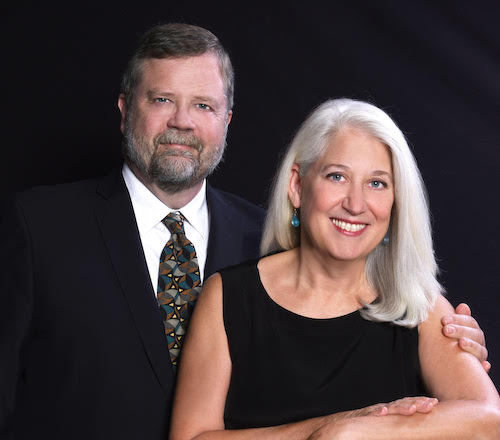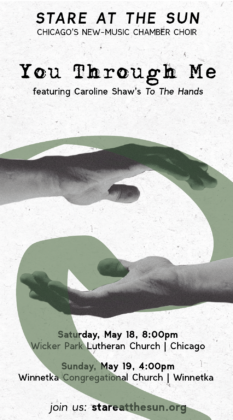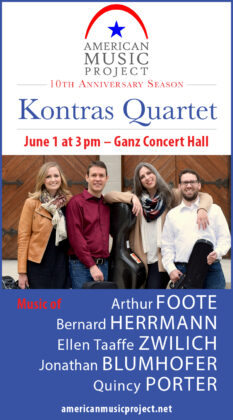Newberry Consort wraps season with a delightful French banquet

In a world where even high culture is increasingly coarsened by banality, vulgarity, and political acrimony, there is, fortunately, always the Newberry Consort.
Chicago’s most venerable early music ensemble is closing its season this weekend with “Le Jardin de Melodies”—a program of secular French music of the 16th-century. Friday night’s delightful concert at the Newberry Library displayed the graceful mix of vibrant music-making and lightly-worn scholarship that has made the Consort a favorite of Chicago music connoisseurs for over three decades.
The thematic thread for the evening was the populist entertainments created by ménétriers (minstrels) that would be performed for French monarchs in the latter days of the Renaissance. The program offered a generous and varied selection of dances and the chansons a danser inspired by them, as well as some flamboyant polyphonic songs.
Even for aficionados, nearly every composer name featured in the program—save the prolific Anonymous—would likely be terra incognita. But, as always with Newberry’s musicological excavations, the selections were varied, consistently engaging, and performed with fizzing energy and dedication.
Indeed, with celebrated lutenist Paul O’Dette and ten other singers and period instrumentalists joining Newberry co-directors, soprano Ellen Hargis and violinist David Douglass, the large period band offered a rich and wide-ranging feast of songs and ear-tickling timbres.
Shawn Keener’s projections of period paintings and artwork made the usual pleasing visual counterpoint to the performances, and the translated English lyrics aided one’s enjoyment of the songs. The only small quibble of the evening was that some of the translated lyrics veered too far into the colloquial for an easy laugh (“Get lost!” and “Don’t play the field.”).
As often the case with Newberry concerts, the program was divided into sets, with dance music and solos alternating with chansons. Dances by Pierre Phalèse and Adrien LeRoy opened the program in boisterous fashion with a nice recorder solo by the versatile percussionist Dan Meyers.
Lutenists O’Dette and Charles Weaver also switched things up nicely, performing on citterns and guitars as well. O’Dette’s polished solos were a pleasure throughout the program, not least his evocative instrumental in LeRoy’s “O combien est heureuse”; O’Dette’s big hands git around the tiny Renaissance guitar with impressive accuracy and nimbleness.
The potentially problematic period string instruments were admirably in tune throughout with only a couple mechanical mishaps from Douglass’s violin, both quickly ameliorated. (He joked, “I have a violin for sale—cheap!”)
The various pavannes, galliards and branles went with admirable verve and rhythmic snap. All the players were clearly enjoying themselves immensely—not least the irrepressible bass violinist Jeremy David Ward whose rocking, sinuous swaying recalled cellist Hugh McDowell from the halcyon days of ELO.
The most striking instrumental work was Phalèse’s Schiarazula marazula. With all the artists taking part (the singers playing percussion instruments), this odd closer—seemingly half Sephardic and half Irish pub reel— kept accelerating faster and faster culminating in a dazzling and exhilarating coda.
The vocal works proved consistently enjoyable, providing an array of opportunities for the five singers and offering many lilting and melodic chansons that deserve to be much better known.
Hargis joined with tenors Nathan Dougherty and Matthew Dean and bass Joseph Hubbard for a mellifluous quartet rendering of Claudin de Sermisy’s “Chant que vivray en age florissant,” a sweetly naive paean to the god of love. The men robustly praised more earthy appetites in LeRoy’s “Pied de cheval,” a lusty ode to the joys of wine and food.
In fine voice throughout the evening, Hargis also brought fine humor to the country matters of Thomas Crequillon’s “Une gay bergier priorit une bergiere,” in which a young maid tells her admirer that he doesn’t have the stuff to suit her.
Hargis was at her best in the extended lamentation of “Helas, faut-il que je lamente” (by Anonymous), This extraordinary work of suffused royal sorrow turns into regions of unremitting bleakness, and was sung with stoic expression—and superb French in the spoken epilogue—aided by equally sensitive turns by the other singers.
Hannah De Priest made a most impressive Newberry Consort debut, displaying a light, flexible and bell-clear soprano ideal for this repertoire. Backed by the three men, De Prieest conveyed the sweet-sad essence of “Laissez la verde couleur” by Anonymous. Sermisy’s ensuing “Il ne suffit” takes the same lovelorn theme into more tragic regions, here given with an aptly dirgelike drum accompaniment.
Lighter inspiration was floated with two avoan selections. Claude LeJeune’s “Rossignol, mon mignon” was lively and endearing, the singers handling the multipart lines with good humor and elan.
Even more rollicking was Clement Janequin’s “Le chant des oyseaulx.” This charming avian ode to Spring is a veritable showpiece of competing birdcalls, cuckoo sounds and contrasting lines and was thrown off with delightful vivacity and panache.
As the Janequin text puts it, “Away, sighs, tears and worries for Spring demands it.” As Chicago’s long winter finally reaches its end, who can disagree?
The program will be repeated 8 p.m. Saturday at the Logan Center for the Arts and 3 p.m. Sunday at Galvin Recital Hall in Evanston. newberryconsort.org
Posted in Performances




